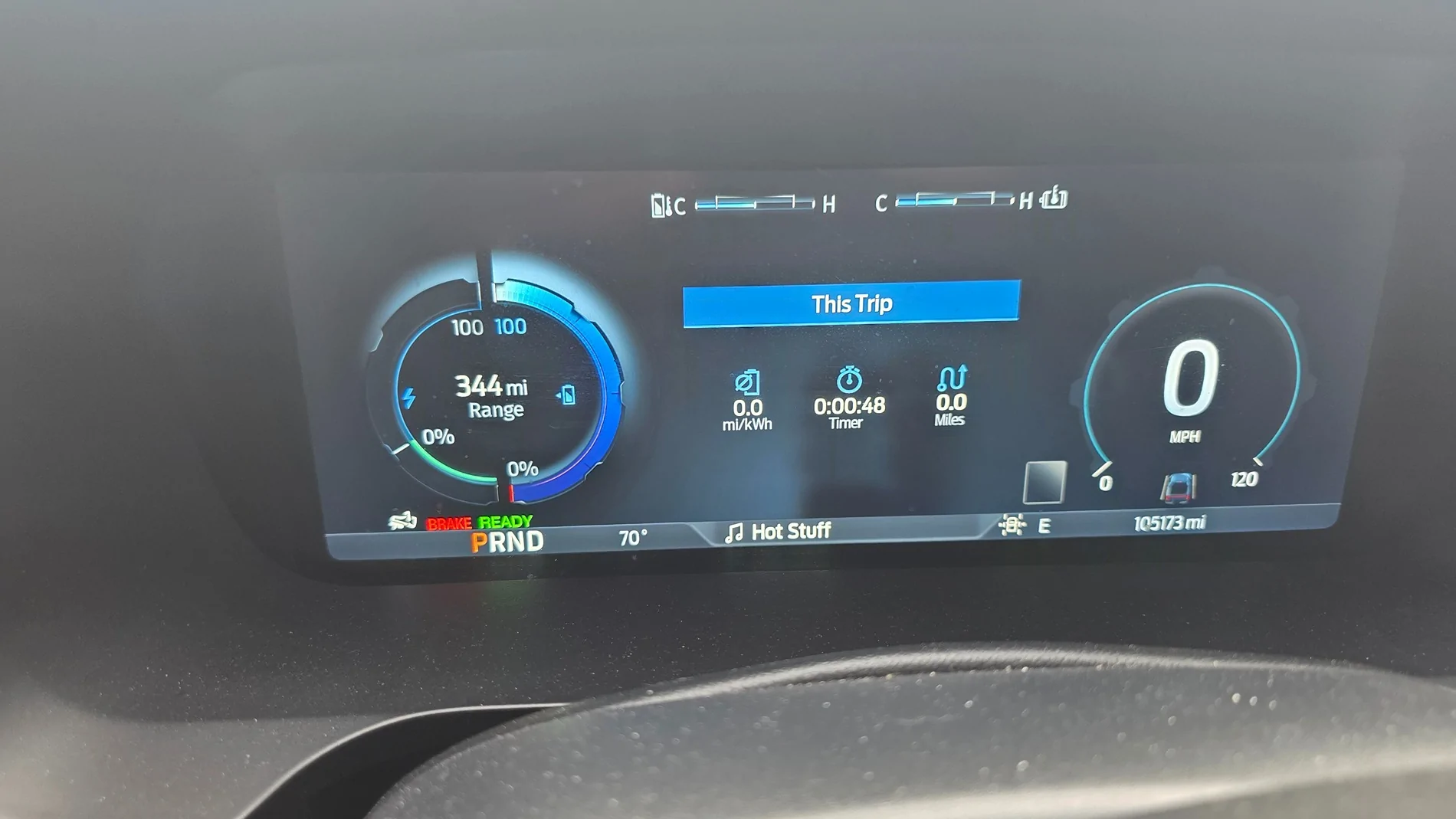2022 Carbonized Gray Lari
Active member
- First Name
- RUDY
- Joined
- Apr 26, 2023
- Threads
- 2
- Messages
- 29
- Reaction score
- 15
- Location
- Carlsbad, CA
- Vehicles
- F 150 Lightning
- Occupation
- Self employed
- Thread starter
- #16
Not worried about it.while it's nice to think that the guessometer is somehow now 'giving' you more miles... it's, well, just a guessometer ...
no, you'll never get more 'miles' than you got yesterday, last year, or three years ago - but what the guessometer 'says' is something different... it's just trying to be nice to you. : )
Sponsored





